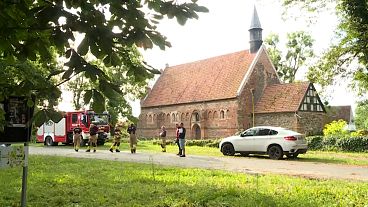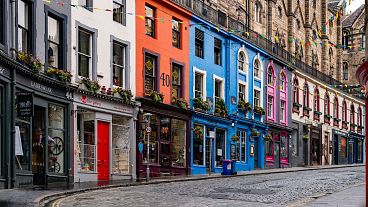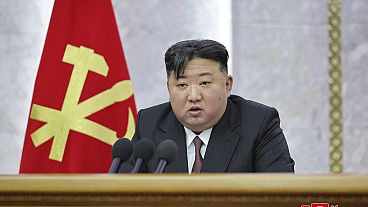By Alastair Macdonald
BRUSSELS (Reuters) - European Union leaders meet in Brussels on Tuesday, two days after an election to the European Parliament returned a more fragmented pro-EU centre and stronger nationalist groups.
They will discuss the succession to key EU jobs over the coming months. Here is a timeline to change at the top:
May 28 - Leaders party groups in the newly elected Parliament meet at 0800 GMT and hold news conference at 1000 GMT. They are expected to endorse a call for national leaders to nominate a lead candidate, or Spitzenkandidat, from a winning party to run the executive European Commission. The first placed centre-right EPP wants Manfred Weber, the centre-left Frans Timmermans. So far, four pro-EU parties seem to have struggled to adopt a common position.
This afternoon, various national leaders are holding private talks. For example, liberal French President Emmanuel Macron and Socialist Spanish Prime Minister Pedro Sanchez lunch with the liberal Belgian and Dutch leaders and Portugal's Socialist premier. Centre-right leaders including German Chancellor Angela Merkel will also meet together. EU summit chair Donald Tusk, who will run negotiations on jobs, will also have several meetings.
From 1600 GMT, the 28 leaders, including outgoing British Prime Minister Theresa May, meet over dinner to debate jobs.
June - Parliamentary groups will negotiate among themselves and with Tusk, seeking to defend the legislature's demand that government chiefs nominate a party candidate to succeed Jean-Claude Juncker as president of the executive European Commission. Many national leaders -- foremost among them the powerful Macron -- are resisting that idea.
June 20-21 - Leaders aim to agree on Juncker's successor and that of European Central Bank President Mario Draghi. They may also agree who will succeed Tusk himself as president of the European Council and EU foreign policy chief Federica Mogherini.
July 2-4 - New Parliament convenes in Strasbourg. It should choose its own president to succeed Antonio Tajani on July 3 -- another job in the mix for the bargaining over key EU posts.
July 16-18 - Parliament sits again in Strasbourg. This is the earliest it could endorse a new Commission president.
July-August - If a Commission president is agreed, he or she would then build an executive team, taking one commissioner from each member state and giving them portfolios. If there is no deal on a successor, then more summits may be needed. In 2014, Tusk and Mogherini were nominated at a summit in late August.
September - New commissioners face hearings in Parliament. Some, notably those nominated by eurosceptic governments in the likes of Italy, Hungary or Poland, could hit resistance but MEPs can only block the Commission as a whole, not individuals.
Oct. 22-24 - Parliament due to vote in Strasbourg to confirm the new Commission as whole. It can withhold its endorsement.
Oct. 31 - Britain is due to leave, deal or no deal -- though a further delay to Brexit is also possible.
Nov. 1 - The Commission is due to take office. If it has not been confirmed by Parliament, Juncker's team would carry on. Draghi's successor is due to take over the ECB in Frankfurt.
Dec. 1 - Tusk's successor due to take office at the Council.
(Reporting by Alastair Macdonald; Editing by Ed Osmond)












